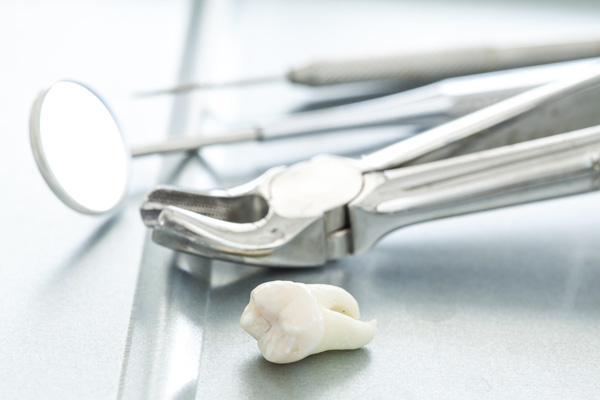Recovering from a Tooth Extraction: What to Expect
Preparing for a ? While the procedure may seem daunting, it is important to know that it is often necessary in order to restore oral health. Modern-day dentistry has allowed for the evolution of technology, which reduces recovery times and pain. Nonetheless, there is still a short period of recovery, which requires a few simple aftercare steps. Keep reading to find out more!
Tips for recovering after a tooth extraction
Outlined below are a few tips from a dentist regarding tooth extraction recovery. It can be helpful to review these tips when preparing for an upcoming tooth extraction.
1. Take an over-the-counter pain medication
Over-the-counter pain medications can be helpful after tooth extraction. Part of recovering means managing the discomfort; however, most tooth extractions do not warrant a prescription medication, which is why a dentist recommends store-bought medications to reduce pain. Medication should always be taken with a small amount of food to avoid an upset stomach.
2. Use ice and a cold compress
Ice and cold compresses can be helpful after tooth extraction. There is usually some slight swelling and inflammation that can be reduced with an ice or cold pack. It is recommended to do a few minutes with ice then a few minutes without it to avoid freezing.
3. Avoid eating hard foods
After tooth extraction, the wound will be uncomfortable and the surrounding areas may be sensitive too. It is best to avoid hard or tough foods that may further irritate the area where the tooth was extracted. Dentists suggest eating soft foods or a liquid diet for a day or so after the tooth extraction. Ultimately, it is up to the patient's discretion when they can eat like normal again.
4. Rinse with salt water
Rinsing after a tooth extraction is important because the wound can experience a build-up of bacteria or debris immediately after. Salt water is a gentle alternative to mouthwash that does not harm the wound or the oral cavity. Dentists recommending rinsing two to three times in one day after tooth extraction. The water should be warm and a small amount of salt should be added to create a gentle cleaning solution.
5. Do not skip oral hygiene
A lot of people are eager to skip oral hygiene after a tooth extraction out of fear that the wound will become irritated. However, the dentist highly recommends continuing to brush and floss as normal, just to be gentle around the recently pulled tooth. Oral hygiene is essential, especially after tooth extraction because the wound is susceptible to bacterial infection.
Find out more from a general dentist
When looking for other tips on recovering from a tooth extraction, it is best to consult directly with a general dentist. The dentist can provide specific tips, which can be helpful to patients who are feeling anxious about the procedure. Reach out today to learn more about life after an extraction.
Request an appointment here: https://www.alisocreekdental.com or call Aliso Creek Dental at (949) 362-3848 for an appointment in our Aliso Viejo office.
Check out what others are saying about our dental services on Yelp: .
Related Posts
For patients who have been suffering from a damaged or infected tooth, finally getting the tooth extracted can feel like a relief. However, bleeding after a tooth extraction can be worrisome and inconvenient. Before a patient undergoes a tooth extraction, it can be helpful to know what to expect in terms of bleeding.After a tooth…
Tooth removal is popular and usually recommended when there is a significant injury to the tooth or in cases of severe tooth decay. The process of recovery after having a tooth removed is a concern for people are about to undergo the process or have done it. In this article, we covered a few tips…
Getting your wisdom teeth removed can be a nerve-wracking experience. The recovery process alone, with the swollen cheeks, ice packs, and pain killers, is enough to make you feel that it is unnecessary despite what your dentist may say. However, wisdom teeth removal is often recommended as a means to prevent several painful illnesses. We…
Patients who are dealing with severe dental issues may think they should go to the ER for emergency dental care. This, however, is often ill-advised, as it may not be helpful in providing the proper treatments needed and can result in other problems arising.The following are a couple of reasons why patients should not go…
